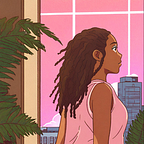CULTURE
Why Black People Don’t Want to Romanticize 1830s With Taylor Swift
Ignoring racism is not the same as confronting it
In her latest song, “I Hate It Here,” Taylor Swift portrays the 1830s as a picturesque scene of a simpler time. Her lyrics, dripping with nostalgia, recall a game where her friends would pick a time they’d rather live in. Taylor responds by saying, “The 1830s but without all the racists. And getting married off for the highest bid.” These words, however, reveal a perspective obscured by rose-tinted glasses, disregarding the grim reality of Black people and women during this era.
Behind the long, flowing, brightly-colored dresses of White women living in the South were the blood, sweat, and tears of slaves forced to harvest cotton. Even the sweet taste of their iced tea was tainted by enslaved labor used to harvest sugar. And the beauty and allure of their favored wedding venue — Plantations — were tainted by these homes doubling as forced-labor encampments. By romanticizing the past, Taylor Swift’s song risks whitewashing the experiences of Black people in this era, whose labor and contributions built this nation. Perhaps we should reflect upon what life was really like during the 1830s. Only then will it become clear why Black people cannot simply daydream away our nation’s nightmarish…
